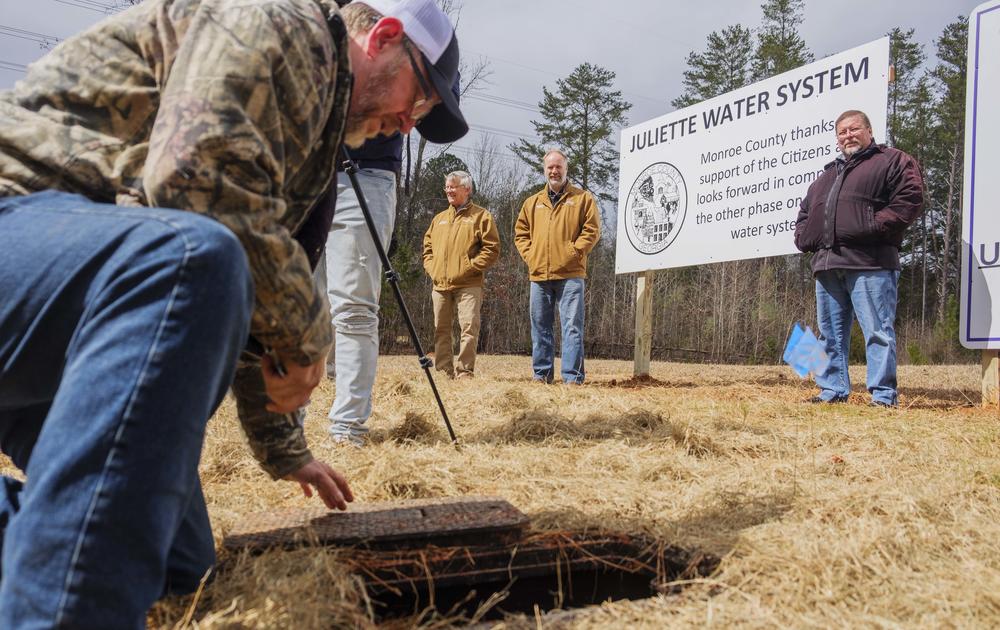
Caption
From left, Monroe County Commissioner John Ambrose, Commission Chair Greg Tapley and Monroe County resident Charles Grizzard watch as a worker turns on the water service to Grizzard’s house Tuesday. Grizzard was the first resident to get city water in a project inspired by worries about coal ash at Georgia Power’s Plant Scherer.
Credit: Grant Blankenship/GPB

